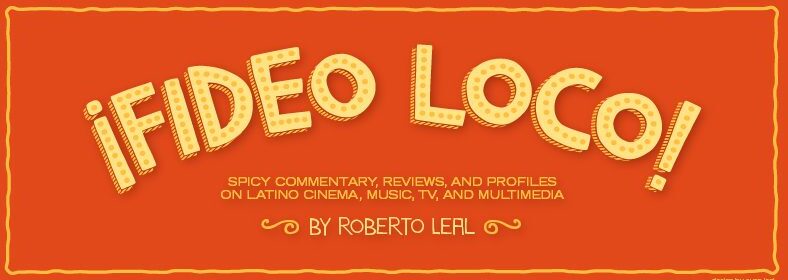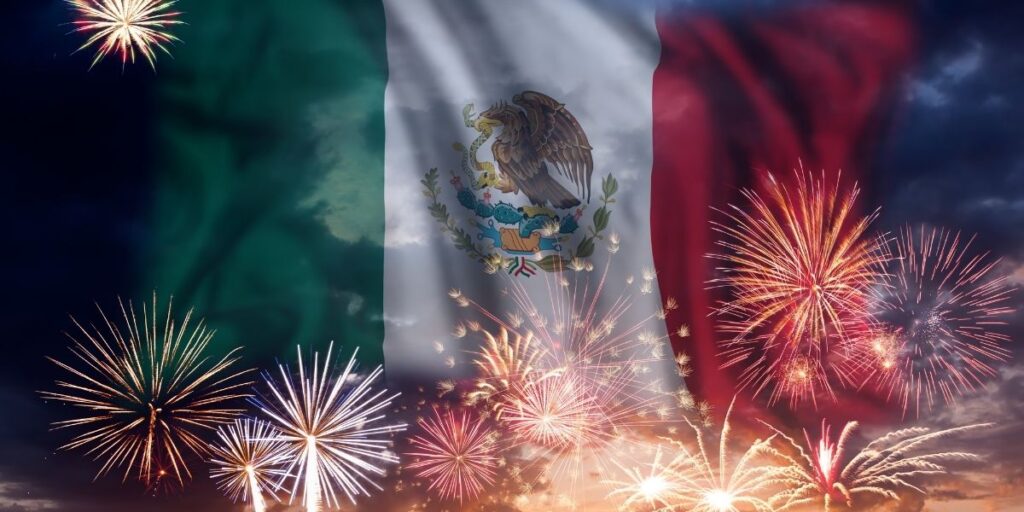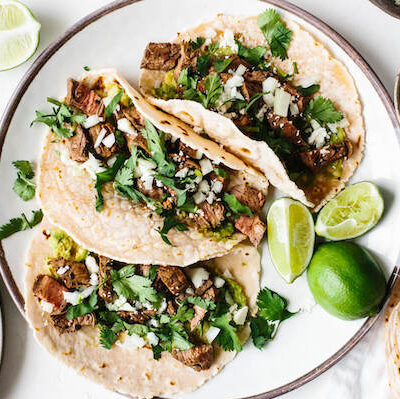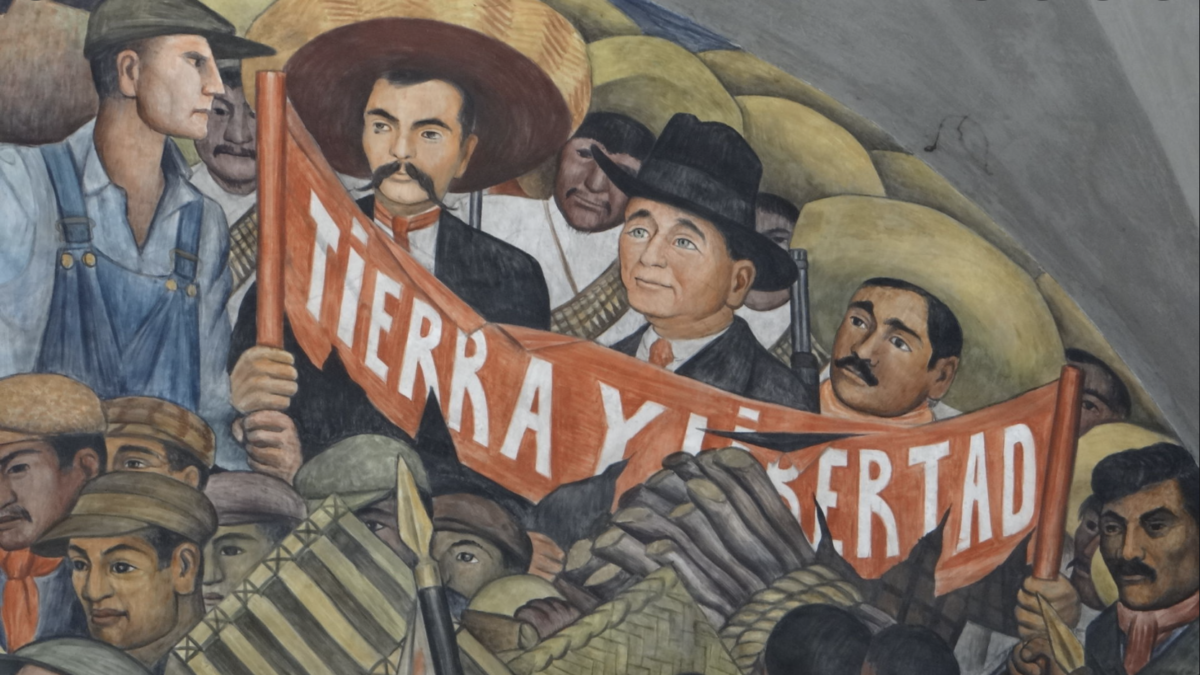Diego Rivera's Mural of the Mexican Revolution (Credit: Wiki Commons)
The International Rippling Cultural Effects of Mexican Independence Day

Most non-Latinos think Cinco de Mayo is Mexican Independence Day. It’s not. Cinco de Mayo celebrates the Mexican Army’s ass-kicking of the mighty French Army at the Battle of Puebla in 1862 when Emperor Maximilian tried to establish a monarchy in Mexico. No way, José or I should say, Pas question, Pierre.
Mexico bid adios to their Spanish colonial overlords on September 16, 1810. Six years earlier, Haiti, an island nation of black slaves, overthrew their French colonial overlords. What was historically significant in both those revolutions was they were both accomplished by people of color against white Europeans. They didn’t get as much coverage on the Nightly News as the American and French Revolutions. Wonder why?

The Mexican Revolution did catch the attention of the fledgling American nation because now their next-door neighbor was no longer governed by fellow traveler white Europeans, but by brown indigenous peasants and barefoot mestizos. So, like a good neighbor, they declared war on Mexico (Mexican-American War 1846 – 1848) and stole over half their territory. But the USA failed to heed the warning of Oscar Wilde: “When the gods want to punish us, they answer our prayers.”
The greedy gringos won the war, but we—the Mexicans, the Latinos, the Chicanos, the Mexican Americans and even the Pochos del Otro Lado—we who now dominate the Southwest, California and increasingly are influencing the rest of America and the world, we won the goddam narrative. Here’s how.

ALL HAIL THE UBIQUITOUS TACO
It’s been said the banana and the potato are the “perfect foods.” These are foods you can survive on without other foods. Well, I guess if you are a monkey or Irish that may be true. But consider the taco. The taco is a complete meal encased in corn, flour, wheat or a multi-grain tortilla. As a complete meal, the taco solves the mystery of chopsticks, exposes the knife and fork as unnecessary and renders the bologna sandwich obsolete. The taco can be enjoyed for breakfast, lunch or dinner. What a taco consists of is only limited by your imagination and what is in your fridge.
In any large American city, there are as many taco trucks on the streets as there are city buses. You can enjoy tacos in Paris, Texas and Paris, France. Legend has it some nice Mexican women made tacos for the defeated French soldiers after the Battle of Puebla. They washed them down with their stuck-up French wine rather than good, ice cold Mexican beer, but c’est la guerre.

YOU’RE IN AMERICA, VATO, SPEAK SPANISH!
Spanish was the first European language spoken in the New World, not English. In some parts of the Occupied Territories along the Tex-Mex border Spanish is the first language of choice. Check out the rosters of Major League Baseball teams and you will find more Spanish surnames than you would in a Havana phone book.
Millions of people with Spanish surnames can be found in every stratum of America: food production and processing, textile sweatshops, the building trades, home and health care and the military. Maybe it’s time English-speaking America learned a little Spanish so they can communicate with those who feed, clothe, house, take care of and protect us.
LATINO HOLLYWOOD ON THE VERGE
Latinos make up a huge percentage of the film and TV viewing audience. But that number is not reflected in the representation of Latinos on the small and big screens. Unfortunately, too often the stories told are stereotypical depictions of gang bangers, drug cartels and other violent, mindless shoot ‘em ups. There are some bright spots to be sure. Cable TV shows like, One Day at a Time, Selena: The Series, Gentefied and recent theatrical offerings, Walking with Herb and In the Heights are just a few positive examples.
The problem is not a lack of talented Latinos in front and behind the camera. The problem is no Latinos heading up big studios that can greenlight more exemplary stories about our community. But this too shall come to pass.
THE TRANS-PACIFIC CHOLO EFFECT
The cholo tradition of East LA has crossed the Pacific to the Far East country of Japan. Today you can find young Japanese girls dressing and making up themselves like the cholas of Boyle Heights. On the streets of Tokyo, lowrider car clubs can be seen and heard bopping up and down the boulevards in a less than fast and furious fashion to the thumping beat of reggaeton.
DON’T LOOK NOW, AZTLÁN HAS ARRIVED
Do we Chicanos have the legal and primordial rights to the lands annexed by the United States resulting from the Mexican-/American War? I seriously doubt this current US Supreme Court would rule in our favor. But if you look at the undeniable influence through language, culture, cuisine and sheer demographics on those annexed territories and around the world the mythic dream of Aztlán has already been achieved. It’s a testament to the indomitable spirit of the Latino people and el grito heard around the world.



